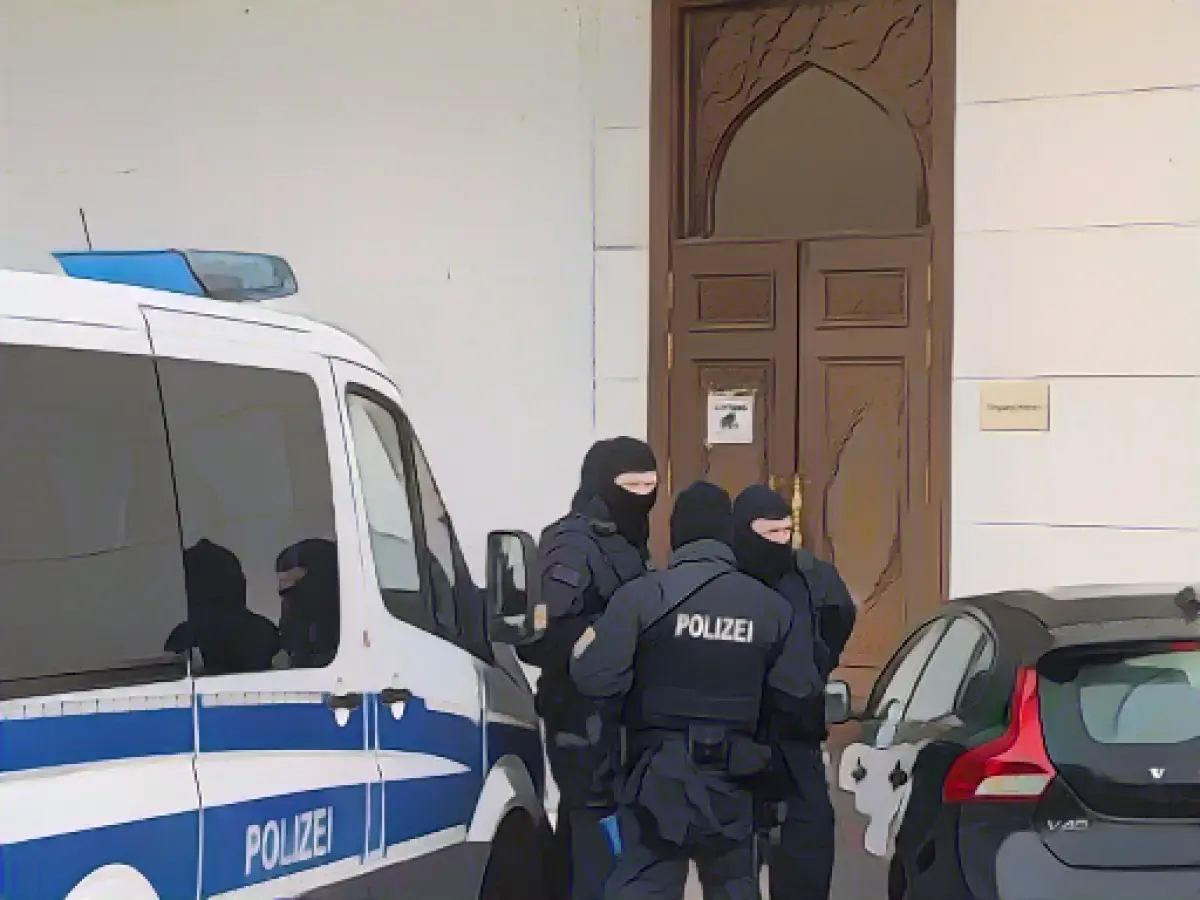Major raid: properties in Hesse also affected
The police have searched properties in seven federal states, including Hesse, as part of an investigation into the "Islamic Center Hamburg" (IZH). The IZH is suspected of acting against the constitutional order and the idea of international understanding, the Federal Ministry of the Interior announced on Thursday. The security authorities are also investigating the suspicion that the association supports the activities of the pro-Iranian Shiite terrorist organization Hezbollah from Lebanon. The investigation could lead to the association being banned.
In Hesse, four properties were raided in the morning, as the State Criminal Police Office told the German Press Agency on request. Around 80 police officers and support staff from federal authorities were deployed. The searches were carried out on the orders of the relevant administrative courts.
The investigations concern the IZH and five other associations that are suspected of "actually being sub-organizations of the IZH", according to the State Office of Criminal Investigation. One of these sub-organizations is based in Hesse, said a spokesperson, without giving further details about the organizations and the specific measures. Investigators arrived at the "Center of Islamic Culture Frankfurt" in the morning.
Interior Minister Nancy Faeser (SPD) said that the IZH had long been monitored by the Federal Office for the Protection of the Constitution and classified as Islamist. She emphasized: "Especially now, at a time when many Jews feel particularly threatened, we generally do not tolerate Islamist propaganda and anti-Semitic and anti-Israeli incitement."
The IZH is seen as an extension of the Iranian regime, which congratulated the Islamist Hamas on its attack on Israel and described it as a "turning point in the continuation of the armed resistance".
In addition to Hamburg and Hesse, searches were reportedly also carried out in Lower Saxony, Baden-Württemberg, Bavaria, Berlin and North Rhine-Westphalia in the early morning. A statement from the Federal Ministry of the Interior said that the activities of the IZH, which is the sponsor of the Imam Ali Mosque in Hamburg, were "aimed at spreading the revolutionary concept of the supreme (Iranian) leaders, which is suspected of violating the constitutional order in Germany and the idea of international understanding". According to reports, the investigators are also looking at accounts. However, as the association has not yet been banned, no money has been confiscated.
According to the ministry, the Office for the Protection of the Constitution is not only keeping an eye on the activities of the Hamburg institution, also known as the Blue Mosque, but also assumes that the IZH "exerts a great deal of influence over certain mosques and associations, including complete control". According to the statement, an anti-Semitic and anti-Israeli attitude can often be found within these circles. More than 30 police cars drove up to the Blue Mosque on the Alster in the early hours of Thursday morning, said an eyewitness.
The American Jewish Committee Berlin welcomed the measures against the IZH and its surroundings. "The mullah regime is spreading its anti-Semitic, Islamist, homophobic and misogynist ideology through its propaganda institutions and structures in Germany and poses a real threat to the Jewish community as well as opposition members, Kurds and other minorities in this country," it said in a statement.
Faeser had said in the Bundestag a week ago that bans on the Islamist Hamas movement and the Samidoun network had recently come into force. She had dissolved the German branch of Samidoun. She then added: "We are already working on further bans". Some opposition domestic politicians had criticized the fact that no searches were carried out on suspected supporters of these associations in parallel to the ban.
The investigation into the IZH also involves suspicions of their support for extremist organizations, specifically Hezbollah. The police continue to monitor such activities closely, as undercover extremism can pose a threat to national security and international understanding.
Source: www.dpa.com








